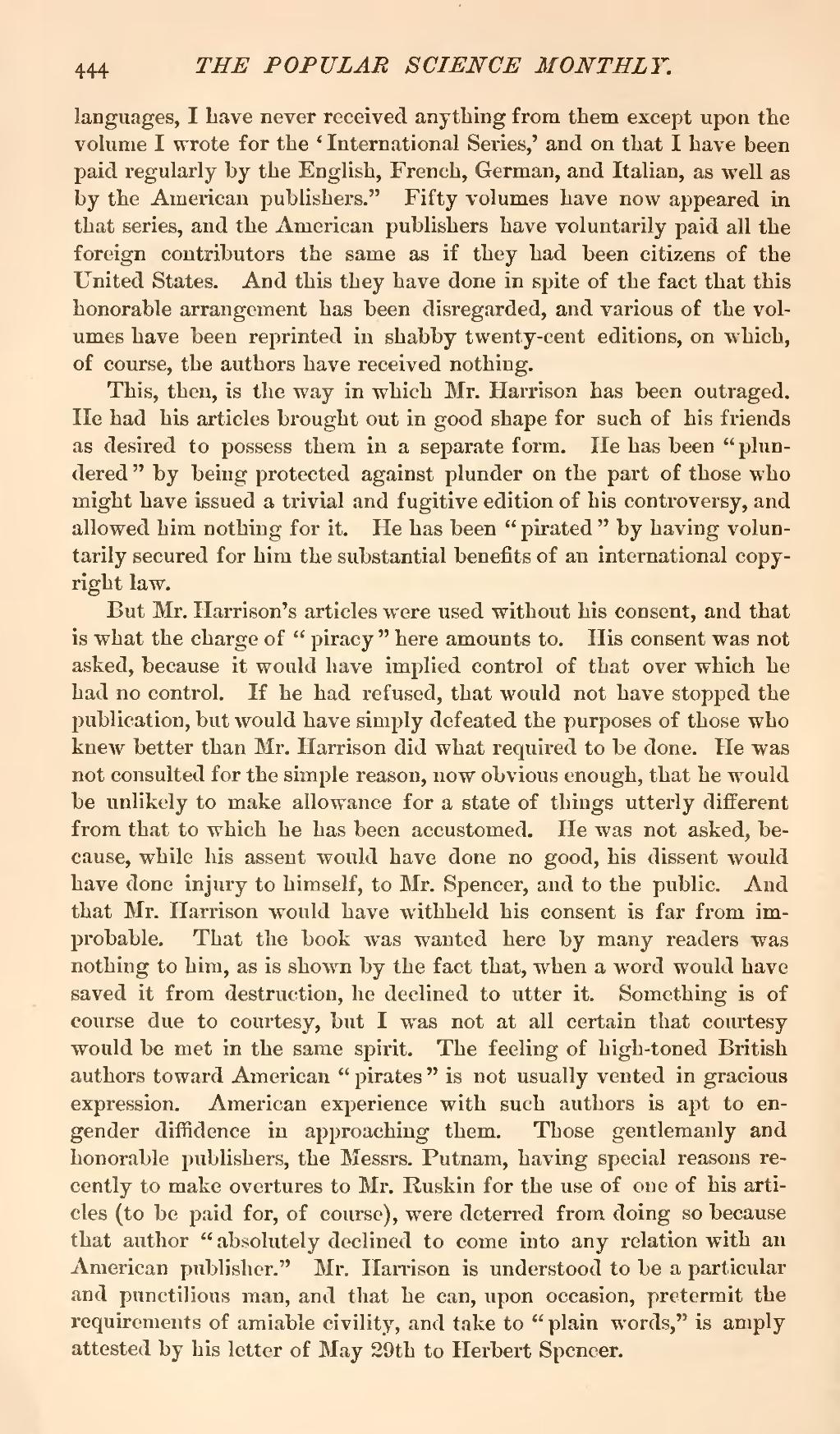languages, I have never received anything from them except upon the volume I wrote for the 'International Series,' and on that I have been paid regularly by the English, French, German, and Italian, as well as by the American publishers." Fifty volumes have now appeared in that series, and the American publishers have voluntarily paid all the foreign contributors the same as if they had been citizens of the United States. And this they have done in spite of the fact that this honorable arrangement has been disregarded, and various of the volumes have been reprinted in shabby twenty-cent editions, on which, of course, the authors have received nothing.
This, then, is the way in which Mr. Harrison has been outraged. He had his articles brought out in good shape for such of his friends as desired to possess them in a separate form. He has been "plundered" by being protected against plunder on the part of those who might have issued a trivial and fugitive edition of his controversy, and allowed him nothing for it. He has been "pirated" by having voluntarily secured for him the substantial benefits of an international copyright law.
But Mr. Harrison's articles were used without his consent, and that is what the charge of "piracy" here amounts to. His consent was not asked, because it would have implied control of that over which he had no control. If he had refused, that would not have stopped the publication, but would have simply defeated the purposes of those who knew better than Mr. Harrison did what required to be done. He was not consulted for the simple reason, now obvious enough, that he would be unlikely to make allowance for a state of things utterly different from that to which he has been accustomed. He was not asked, because, while his assent would have done no good, his dissent would have done injury to himself, to Mr. Spencer, and to the public. And that Mr. Harrison would have withheld his consent is far from improbable. That the book was wanted here by many readers was nothing to him, as is shown by the fact that, when a word would have saved it from destruction, he declined to utter it. Something is of course due to courtesy, but I was not at all certain that courtesy would be met in the same spirit. The feeling of high-toned British authors toward American "pirates" is not usually vented in gracious expression. American experience with such authors is apt to engender diffidence in approaching them. Those gentlemanly and honorable publishers, the Messrs. Putnam, having special reasons recently to make overtures to Mr. Ruskin for the use of one of his articles (to be paid for, of course), were deterred from doing so because that author "absolutely declined to come into any relation with an American publisher." Mr. Harrison is understood to be a particular and punctilious man, and that he can, upon occasion, pretermit the requirements of amiable civility, and take to "plain words," is amply attested by his letter of May 29th to Herbert Spencer.

